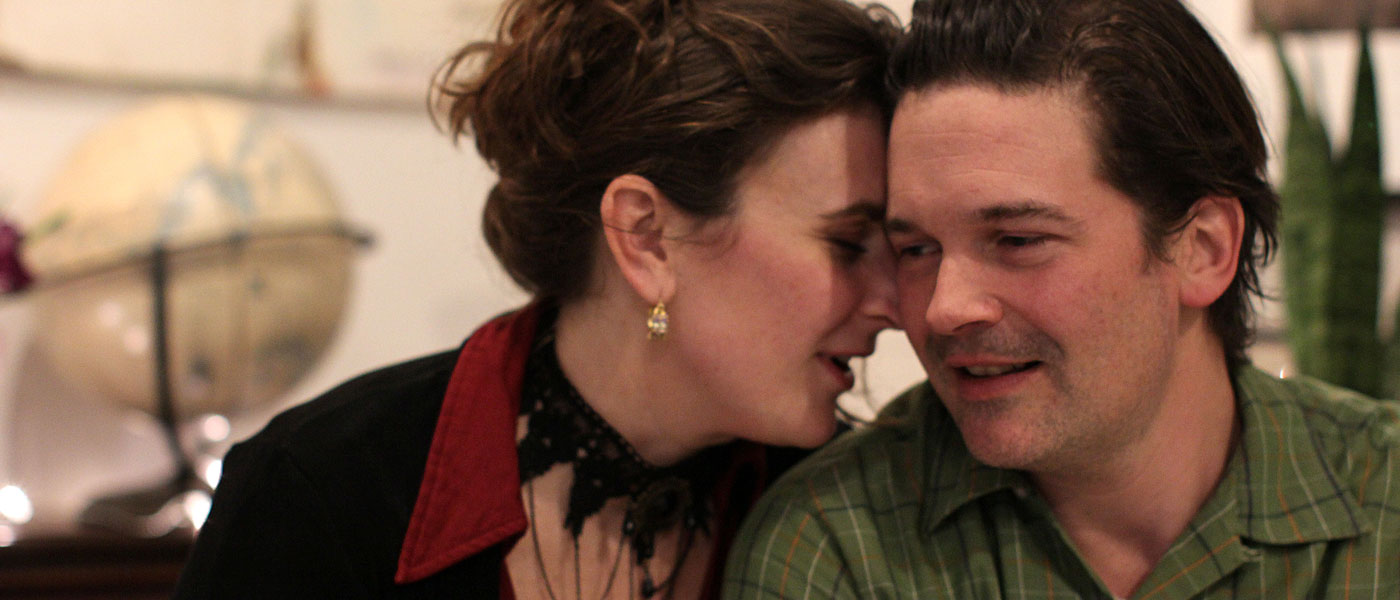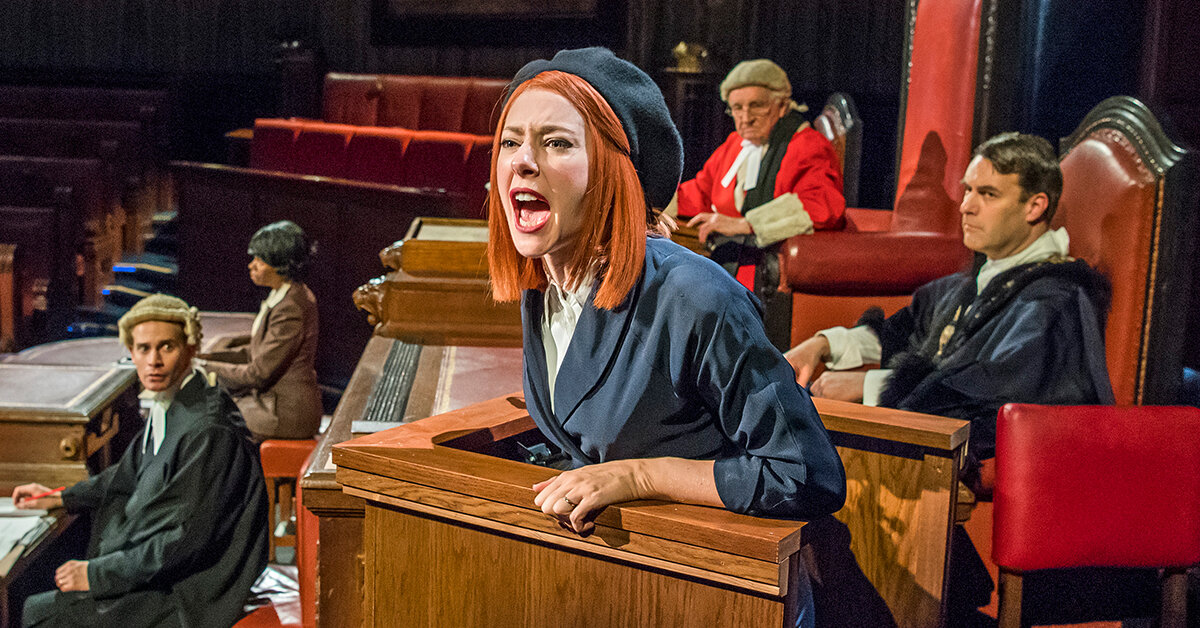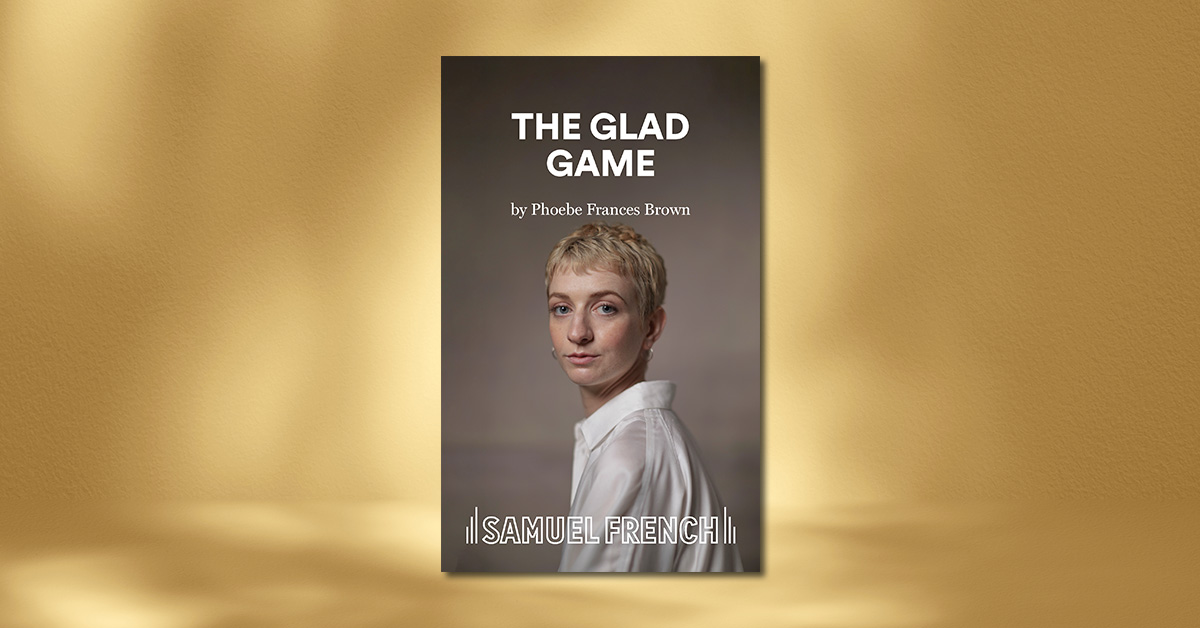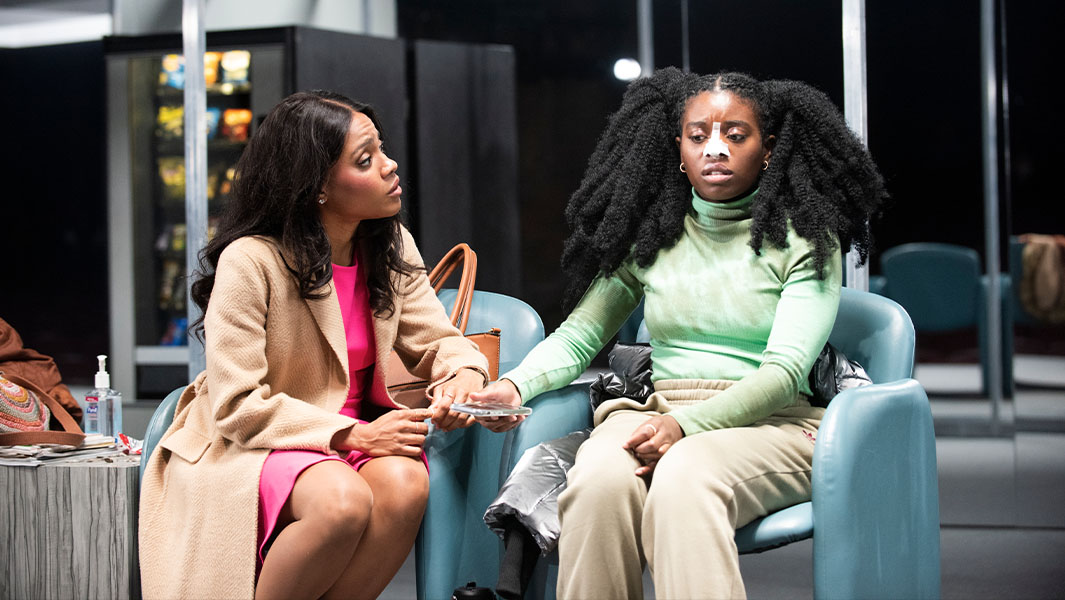
Renowned playwright Rosary O’Neill is known for penning plays that feature famous — and deceased — cultural icons such as Marilyn Monroe, Samuel Beckett, and Marie LaVeau. Her latest play, The Awakening of Kate Chopin, focuses on events in the life of one of America’s premiere female writers and feminists. Originally hailing from New Orleans, Rosary was drawn to the life story of Kate who spent a substantial amount of time in the famous Southern city. From the start, Rosary envisioned this play as a tour de force of obsession, rooted in the real life of the famous first great American novelist, based on detailed and shocking facts from her life.
Set in December of 1882, The Awakening of Kate Chopin focuses on a time when Kate was forced to juggle her relationship with her dying husband, Oscar, while carrying on a scandalous love affair with her wealthy neighbor, Albert. After her husband’s death, Kate chose to live with Albert but he subsequently betrayed and left her. This devastating event ultimately led a then-unpublished Kate to create some of her best work and secure a place in the history of American literature.
Actress Michelle Best is slated to play the role of Kate, something she regards as an honor considering that she has long admired the woman’s work. “Chopin had hope in her own self,” Michelle exclaimed. “She believed in her own desire enough to break social conventions and do what her heart said instead of what society told her to do. I have always been an impulsive woman, yet there are contrary messages we, as women, as mothers, have been taught or have had handed down to us. It is very difficult to be an artistically viable woman, and to try and be ‘good’ and ‘right’ at the same time, especially for mothers. There’s an inherent selflessness one must have to be a ‘good Mother’ and as an artistic woman, it is sometimes hard to give enough to our own creations, because we are supposed to subjugate ourselves to our children; we are supposed to be satisfied enough with them as our creations, so as not to need or desire anything more. But for an artist, the calling just doesn’t go away. Our spiritual creativity has to be fed, or we die. I understood this deep within my soul even at a young age, even contemplating motherhood and Kate Chopin gives the struggle voice so magnificently, she captures this angst so hopefully, too. Her novel struck me to my core.”
Michelle and Rosary met when Michelle was cast as part of the PDW unit at the Actors’ Studio in another one of Rosary’s plays titled Montgomery Clift and the All Girl Fan Club. Rosary liked the choices Michelle made as an actress and that early good impression led to them collaborating. “I told her how much it thrilled me to be playing Marilyn Monroe in her play at the Actors’ Studio and she told me she had a few other plays that I might like,” Michelle explained. “When I saw the Kate Chopin piece I was instantaneously enthralled! Rosary impressed me as a woman with such an amazingly feminine force. She is powerful and feminine in a way that is so attractive. I love the way Rosary balances art and commerce. She’s a smart businesswoman and an amazingly gifted playwright.”
InThe Awakening of Kate Chopin, Kate is torn between two men, and a majority of the plot concerns the underlying heat of forbidden love that passes between her and Albert and the love that is waning between her and her alcoholic husband, Oscar. The chemistry of lust and the limitations of old love are explored in the subtext of every scene and accounts of Oscar’s drinking, womanizing, and poor business skills make it easy to pity Kate. As Michelle described, “It is what the characters are NOT saying that is the pulse of this piece. There are lots of layers of emotion.”
Actor Chris Stack is slated to play Albert—the soon-to-be-divorced man who helped save Kate’s family business from Oscar’s poor decisions, encouraged her writing, supported her emotionally, and ultimately became both her muse and her desire. An experienced performer on stage and in film and television, Chris worked with Michelle numerous times in the past and their artistic energy and connection is undeniable. Keith Bulla, a director who has extensive experience working with playwrights on the development of new work, much of it at the Actors Studio where he is a Lifetime Member, agreed to direct the play which had its first reading on February 13, 2017, in Park Slope, Brooklyn, at the home of Stephanie and Geordie Thompson; co-founders of InspireCorps, a non-profit arts education organization that links artists with schools, and dedicated supporters of the arts. The reading was a resounding success — largely due to the electrifying chemistry between Michelle as Kate and Chris as Albert — practically guaranteeing a much-warranted official staging of the play.
Recently, Rosary O’Neill spoke about her experiences working on this play and her ultimate intentions for it:
Meagan Meehan: What was it about the life of Kate Chopin that drew you to her?
Rosary O’Neill: I was stunned that a woman of such magnitude and talent had to overcome massive resistance to getting her work published. I was impressed that she was a mother of 6, a wife of a critically ill cotton broker, and only daughter of a widowed mother and she was able to pull herself up by the bootstraps out of bankruptcy and destitution and become the great writer she was. Of course, the fact that she went to a Sacred Heart Convent (I did too), was raised by women of French descent (I was too), was tutored by a brilliant mother and grandmother (I was too), made a debut, traveled abroad, married young (I did too) impressed me also. Kate’s success made me hope I too could be heard as a writer. She had the courage to write about difficult subjects like mixed race marriages, women adulterers, etc. I have always been fairly confined by my past (like Kate I was presented in high society, like Kate I married in the Catholic Church, was a top student of literature). Kate is as my “ancestral mentor.” She learned to please herself and she learned to use her real estate to finance her writing career. Something I too have done. I was initially drawn to Kate because I heard that she’d walked the streets of New Orleans with Edgar Degas, and her husband’s cotton office was next door to Edgar’s uncle’s. The Chopin/Degas relationship intrigued me and led me to wonder about what challenges Kate faced as a woman artist. Her story resonated with my life and gave me a peephole to understanding the life of an artist. I was also amazed that the prejudiced against women writers still exists, and that we haven’t come too far from what Kate experienced. The beauty in studying Kate is seeing the legacy her bravery has left us. When I initially heard about Kate Chopin I was living in New Orleans teaching at Loyola University. Two colleagues there were the experts on Kate and so I had ready-made research over coffee at lunch. At Loyola I was the second full professor who was a woman and the first female professor in the theatre department. I guess I hadn’t truly realized till I studied Kate’s life how far we women had come.
Megan: Some of Kate’s writings were very harsh – even cruel – towards her husband and children. Considering this, when you researched her, what kind of relationship did she have with her children in later life?
Rosary: Amazingly all of her six children (married and single) were living with her in her big house in St. Louis when she died. Her children adored her (this too gave me hope as I am mad for my four adult children.) After her husband died and her lover abandoned her, Kate moved to St Louis to be with her mother. A year later her mother died. Like Virginia Wolf, Kate was freed by money. She could speak freely, had a room of her own so to speak because she was the only daughter/heir of a wealthy widow. Upon her cruel husband’s sudden death, Kate’s mother didn’t remarry and neither did Kate because in that time if once a woman wed, her money became her husband’s. So, wealth freed Kate to become the writer she was meant to be (and she didn’t start writing seriously till almost 40). Kate Chopin in life never left her children but she did live with her lover after her husband died. In Louisiana at that time you couldn’t legally marry someone with whom you had had an affair. I don’t think Kate was cruel to her children and her husband was an out and out philanderer frequenting brothels and other women, and flaunting the double standard. In good times when she and her husband had servants and she could travel and have quiet alone time, Kate could sustain a difficult marriage, but when Oscar went bankrupt and became vindictive it was a different story. Albert Sampite, with whom Kate had the affair, was renown as the greatest lover south of the Mason-Dixon line and even today when you visit Chopinville (a town named after Kate’s in-laws) the descendants of Albert Sampite (gorgeous horsemen) are still infamous as lovers. Interesting fact, “Sampite” in French BTW means “without pity.”
MM: Kate was known to flirt with married men and be very sharp tongued. Noting the negative aspects to her personality, what did you find redeeming about her?
RO: Kate flirted with Albert Sampite who was married (but estranged) and who was saving her husband’s bankrupt plantation and also financing her husband’s cure from malaria. Albert treated her like an equal like the good businesswoman she was–and became–and she fell prey, as did many, to his charms. Kate was exhausted and privileged: her education, her wealthy background, her fawning female family had given her strength but made her resent the desperate situation she fell prey to. She was a little like Scarlet O’Hara. After her husband died, she sold off his goods, auctioned property, pulled herself and her children from despair. Her sharp tongue came from the fact she was a city girl exiled five hours from New Orleans in a town with a population of about 100. Then too would a man who was so strong not be seen as forthright or direct as opposed to sharp tongued. The women of the Louisiana village where Kate was exiled to were clearly jealous and vindictive and out to do in any beautiful woman who came to town in clothes from New Orleans, riding bareback, reading Nietzsche, speaking Parisian French, and resolute to represent her husband’s interests.
MM: What did Kate write? Have any of her stories impacted you in some way?
RO: Kate had always been a brilliant student and lover of language. Even as a girl she kept diaries and copied passages from literature that she liked to study. She wrote to express what she saw and to capture the life particularly of bayou. Because Louisiana at the time was considered “folksy” she was able to get an audience for her short stories in women’s magazines that looked for colorful material. Later she self- published her first novel “At Fault” which was then questionably received. Most critics shunned her masterpiece, “The Awakening”. It was almost totally autobiographical and its poor reception tortured Kate and may have led to her aneurism and early death. Kate’s novels, unlike most of her short stories, weren’t written for a popular public but for a sophisticated audience, which wasn’t there for her yet. “The Awakening” only became known after Per Seyersted, a Norwegian scholar, rediscovered Chopin in the 1960s and brought Kate the recognition she deserved in the 1950/60s years after her death.
MM: What was her later life like? Did she finally find peace and happiness in her circumstances?
RO: In St Louis, the mature Kate was comfortable. She created a writer’s circle. She socialized with other brilliant people: doctors, lawyers, and poets. She financed trips for herself to New York to meet with editors and get her work published. She supervised her real estate in St. Louis, which provided her with an income to continue writing.
MM: Where are you hoping to have this play performed?
RO: I am hoping to have this play performed at the Signature Theatre, a newly built theatre that celebrates seminal new work, at the Public Theatre founded by the courageous Joe Papp, and then on Broadway to bring Kate Chopin to the stage and to the New York world.
MM: What’s next for you?
RO: I’m working on two rock musicals of my plays, Marie LaVeau and the Vampire and John Singer Sargent and Madame X. My play, Degas in New Orleans, will be read in Paris by graduate theatre students of the Sorbonne University and directed by Joseph Danan at Columbia University’s Reid Hall to celebrate the 100th anniversary of Edgar’s death in 1917.
To purchase a copy of The Awakening of Kate Chopin click here, and to learn more about licensing a production, click here.

Agatha Christie’s Witness for the Prosecution: Meet the Characters

The Glad Game – In Remembrance of Phoebe Frances Brown

